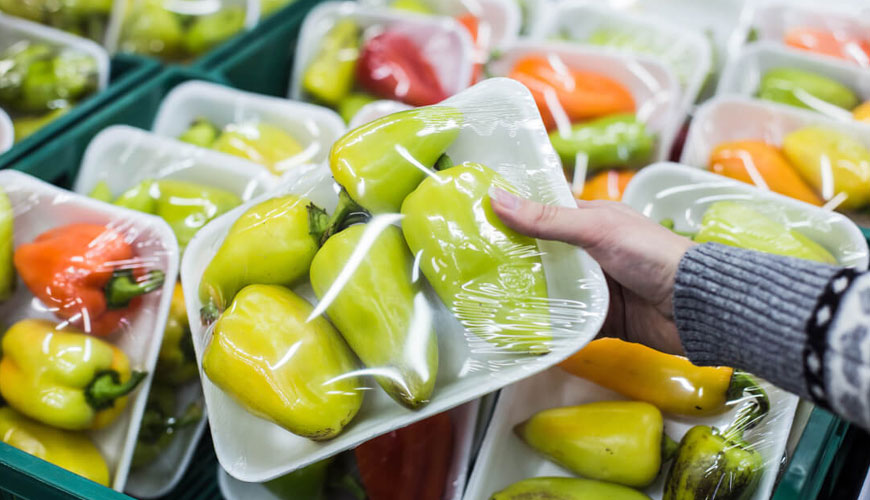

EUROLAB laboratory provides testing and compliance services within the scope of EN 1186-2 standard. This part of the EN 1186 standard describes test methods for determining the general migration from plastic materials and articles to fatty food simulants by total immersion of test samples in fatty food simulants at temperatures above 20 °C and up to 20 °C.

This standard is most suitable for film and sheet plastics, but can be applied to a wide variety of articles or containers from which suitably sized test pieces can be cut.
This test method is written for use with a fatty food analogue, olive oil. The test method can also be used with other fatty food simulants, called simulant D, which is a synthetic blend of triglycerides, sunflower oil and corn oil, with appropriate modifications.
These other fatty food simulants will produce different chromatograms for chromatograms of methyl esters of olive oil for similar methyl esters. Appropriate chromatogram peaks of methyl esters of other fatty food simulants should be selected for quantitative determination of the analogue extracted from test samples.
The test method described is applicable to most types of plastics, although there are some plastics that are not known to be applicable.
Overall migration from a plastic sample is determined as the loss in mass per unit of surface area intended to come into contact with foodstuffs. The choice of test conditions will be determined by the conditions of use. Test samples of known mass are immersed in olive oil for exposure time at temperatures above 20 °C and below 100 °C, then removed from the olive oil, blotted to remove adhering oil and reweighed.
Samples will usually retain absorbed olive oil, which is extracted and quantified by gas chromatography after conversion to methyl esters. Methylation is accomplished by reacting a boron trifluoride/methanol complex with fatty acids formed by hydrolysis of oil with potassium hydroxide. An internal standard, triheptadecanoin, is added before extraction of the olive oil absorbed from the test samples.
It allows any active or extractable component of this plastic to react with the extracted olive oil as well as the internal standard. The internal standard is also subject to hydrolysis and methylation reactions, compensating for inefficiencies in the hydrolysis and methylation processes.
The transition to olive oil is calculated by subtracting the mass of olive oil retained by the test sample from the mass of the test sample after it has been removed from the olive oil, and then subtracting that mass from the initial mass of the sample.
Total loss in mass is expressed in milligrams per square decimeter of sample surface area and overall migration is reported as the average of a minimum of three determinations on individual test samples.
To allow for inaccuracies that may arise during the procedure and which may be difficult to detect, for example due to contamination or oil loss during the sample processing steps, four determinations are made on the sample allowing the result of a sample to be taken. This method includes variations that can be applied to certain plastics.
EUROLAB, with its more than 25 years of experience, state-of-the-art accredited laboratories and expert team, helps you get precise and fast results. Do not hesitate to contact our laboratory for your testing and certification requests.
To get an appointment, to get more detailed information or to request an evaluation, you can ask us to fill in our form and reach you.